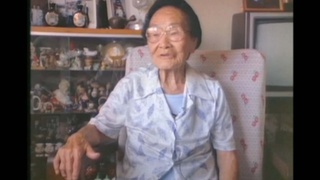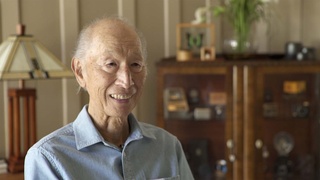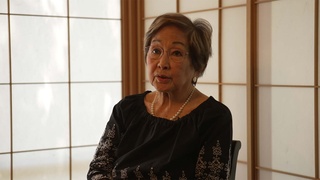Interviews
Parent's immigration to Peru
He went there with, he said, hundreds of Japanese men on a ship, so that takes a long time to get there. They said there's all this work in Peru, and he said immediately they found out there was very little. He said people starved. It's not like people could just pay and say, "Oh, I'm going to go back and fly back." There's no even taking a boat back. So he quickly went from his trade, which was being a carpenter, and did some farming, and then got into the laundry business and was successful with that. He ended up with three different laundries, and he was quite involved in the community there as well.
So when you're involved with the community and you start to grow his business, you became successful, and that's one of the reasons why he was targeted. And he was at a point where, I don't know for a fact how many people worked there at the three laundries, but to the point where he had a nanny to take care of the younger kids, a cook, they didn't drive them, but they would call their limo, so they were wealthy. Yes. And he was at his prime when they took all that away from him, the business, the property, of course, all the money that he had. That's probably the hardest part.
My mother, being the typical Japanese wife, just went along. She's a picture bride, and so she went along. It's not like she had a choice either.
Date: September 20, 2019
Location: California, US
Interviewer: Tom Ikeda and Yoko Nishimura
Contributed by: Watase Media Arts Center, Japanese American National Museum and Denshō: The Japanese American Legacy Project.








